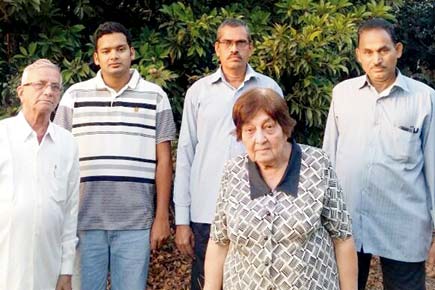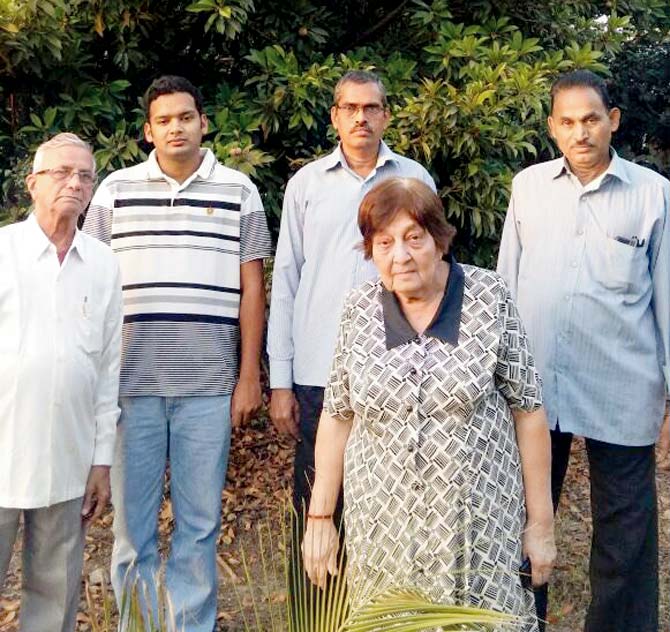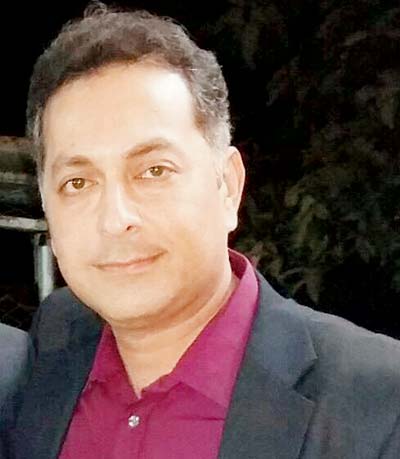8 Bordi farmers file for insurance payment with bank, but bank fails to reach the documents to insurer, leading to no payout


(From left) Affected farmers like Vasudev Patil, Niraj Patil (standing in on behalf of his mother), Umesh Raut, Shirin Irani and Shatrughna Raut
It could well be a comedy of errors with its characters of bungling fools were it not for the end result: loss of around Rs 6 lakhs for eight chickoo farmers in Bordi. They were hit badly — first by the humid climate, and then the sheer incompetence with which their insurance claim was handled by the management of both the Bank of Baroda and Reliance Insurance Cooperation.
ADVERTISEMENT

Shahrukh Irani, son of Shirin
The issue at hand
Under the Pradhan Mantri Fasal Bima Yojana, any crop damage due to climatic conditions is insured, but this year, confusion over the address of the new insurance partner, Reliance, led to no payout for the suffering Bordi farmers. “After our crops got damaged during the monsoon, we immediately filled in the required papers and submitted it at the Bank Of Baroda’s Bordi branch. On July 13, the bank sent the documents and the cheque to Reliance Insurance — but on a wrong address — setting off the entire debacle,” said Shahrukh Irani, whose mother had filed a Rs 2 lakh claim for the damage of four hectare chickoo at a yearly premium of Rs 2,500/hecatre.
However, even after the documents were sent back to the bank for a lack of address on August 1, the bank failed to rectify the problem or even notify the farmers about the situation. “It was only on November 13 that we found out about this whole confusion. Forget the insurance money, we were not even informed about anything. So now what happens to our lost crop? What about the damage?” added Shahrukh.
But here’s what is clear: The deadline is past and the insurance firm is refusing to pay the farmers who are caught in this cross fire between the bank and the insurer.
Blame game begins
Bordi’s Bank Of Baroda’s branch manager Satendra Kumar justified the goof-up by using the crutch of demonetisation and blaming Reliance for not updating its address after shifting. “There are several reasons like transfer of managers and the rush during demonetisation. Also, we receive so many letters from so many companies that it gets difficult to handle,” he said, adding, “Our branch is on the Gujarat border and 10 kilometres from the main city. In the interiors, we are uninformed about all these things like address change.”
Reliance however, says that it was the bank’s fault as it was misinformed about the address. Pramod Patil, Reliance’s state coordinator of the scheme, said, “What the bank did was Google the office address and post the documents. Just like that. They didn’t inform us or have any kind of conversation. This is not how things work. The Government Regulations document on the scheme clearly mentions the Goregaon office, then why did they send it to the Wadala office? The date has now passed, and because of all this, we cannot do anything. The bank is to be blamed for the chaos.”
What of the farmers?
“It’s not just us. Along with the farmers are the labourers, the families that depend on the harvest for their personal investments, and several other lives that are going to be affected because of the mismanagement by these two parties. While they are busy playing the blame game, it’s us, the farmers, who are paying the price,” said Niraj Patil, another farmer.
Vasudev Patil (78), who owns two hectare land, and paid a premium of Rs 5,000/hectare, said, “They should mention why it was rejected and somebody should be held accountable.” Now, the farmers plan to write to the Prime Minister’s Office about their current predicament and failure of the scheme.
How the crop was damaged
The chickoo harvests mainly between December and May. In the monsoons, however, when the chickoo is pea-sized, it is at maximum risk as the humidity creates fungus inside the fruit. According to the scheme, if the humidity is or more than 90 RH (Relative Humidity), and remains so for more than 10 days — which in the case of the Bordi farmers continued for 22 days and destroyed 90 per cent of the crop — they are eligible for an insurance claim.
 Subscribe today by clicking the link and stay updated with the latest news!" Click here!
Subscribe today by clicking the link and stay updated with the latest news!" Click here!







